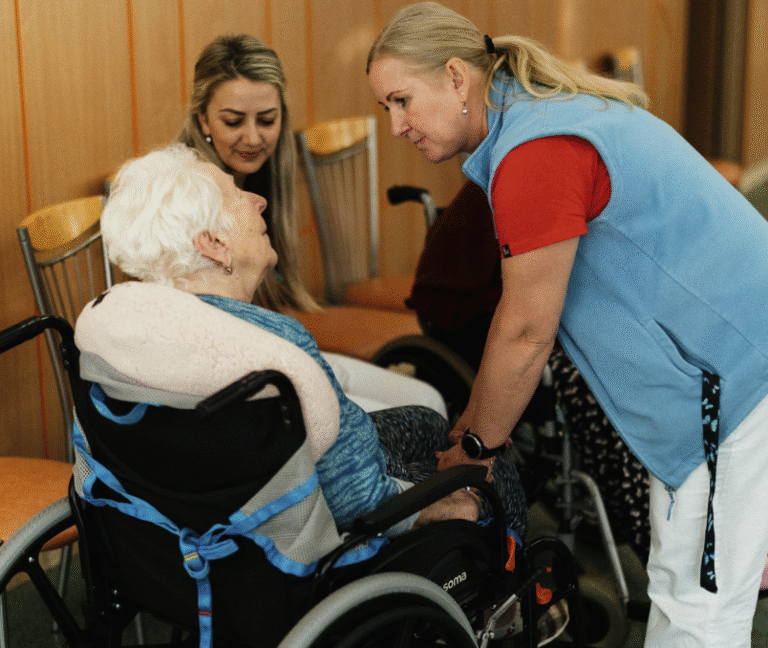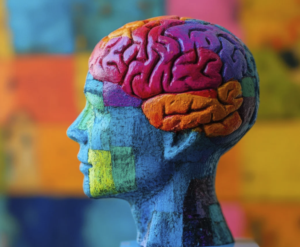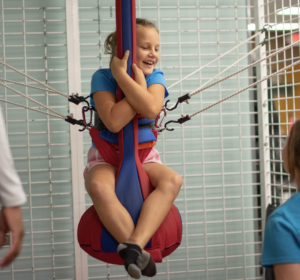Amyotrophic Lateral Sclerosis (ALS), better known as Lou Gehrig’s Disease, is a progressive condition that affects the nerve cells controlling voluntary muscle movement. As the disease advances, it causes increasing muscle weakness and can make everyday activities like walking, speaking, swallowing, and eventually even breathing more difficult. While there’s currently no cure, new therapies and supportive care are helping people with ALS live more independently, maintain their quality of life, and preserve their dignity throughout the course of the disease.
Understanding ALS
ALS mainly affects the motor neurons—nerve cells in the brain and spinal cord that send signals to our muscles. When these cells start to break down, the muscles they control become weaker and eventually shrink. Early signs can be easy to miss, like stumbling, dropping things, slurred speech, or unusual fatigue. Over time, the condition can take away the ability to walk, use your hands, speak, or even swallow.
What makes ALS especially difficult is that while the body loses physical abilities, the mind usually stays sharp. People remain fully aware of what’s happening, even as their body changes around them.
The Importance of a Multidisciplinary Approach
Because ALS impacts so many parts of daily life, the best care usually comes from a team of specialists working together. This team often includes neurologists, physical therapists (PT), occupational therapists (OT), speech-language pathologists (SLP), respiratory therapists, and nutritionists. Each one plays a role in helping patients stay comfortable, maintain independence, and support both them and their families.
Physical Therapy (PT)
PT helps manage mobility, muscle stiffness, and joint health. Even though ALS causes progressive weakness, maintaining movement is crucial to delay secondary complications like contractures or pain. PT often includes:
- Range of motion exercises to prevent stiffness.
- Strengthening where appropriate, with modifications to avoid over-fatigue.
- Gait training, balance support, and safe transfer techniques.
- Recommendations for mobility aids (walkers, wheelchairs, braces) to promote independence.
Occupational Therapy (OT)
OT focuses on adapting daily activities and environments to preserve independence for as long as possible. This may include:
- Training in the use of adaptive devices (special utensils, dressing aids, communication tools).
- Energy conservation techniques to help patients use their strength effectively.
- Home modifications for safety and accessibility, such as ramps, grab bars, and adaptive seating.
- Support for fine motor tasks that may become difficult, like writing or self-feeding.
Speech-Language Pathology (SLP)
As ALS progresses, speech and swallowing are often affected. SLP plays a key role in:
- Teaching strategies for clearer speech and breath control.
- Introducing augmentative and alternative communication (AAC) systems, from picture boards to high-tech speech-generating devices.
- Assessing and managing swallowing difficulties to reduce choking risks.
- Recommending diet modifications in partnership with nutritionists to ensure safe, adequate nutrition.
Respiratory Support
Because ALS eventually impacts the muscles that control breathing, respiratory therapists provide essential support, including:
- Breathing exercises to maintain lung function.
- Non-invasive ventilation devices (such as BiPAP) to improve oxygen levels and reduce fatigue.
- Cough assist devices to clear secretions and prevent infections.
Medications and Emerging Therapies
Currently, FDA-approved medications such as riluzole and edaravone can slow the progression of ALS in some individuals. Research is ongoing into genetic therapies, stem cell treatments, and other disease-modifying approaches that offer hope for the future.
Supporting the Whole Person
Beyond physical therapies, mental health support and community resources are vital. Counseling, support groups, and caregiver training help patients and families navigate the emotional, social, and financial challenges of ALS.
Intensive Therapy Approach at Crawl Walk Jump Run
At Crawl Walk Jump Run Therapy Clinic, we believe people living with ALS deserve more than basic maintenance therapy; they deserve care that truly makes a difference. That’s why we provide intensive, specialized treatment designed to help patients hold onto as much strength, mobility, and independence as possible. Our approach focuses on high-frequency, personalized sessions tailored to each stage of ALS progression, ensuring therapy meets the unique needs of every individual.
This approach allows us to:
- Target multiple systems at once (strength, mobility, coordination, and breathing).
- Adapt sessions daily based on fatigue levels and energy conservation needs.
- Integrate PT, OT, and SLP seamlessly, ensuring patients receive a collaborative, whole-person treatment plan rather than fragmented care.
- Provide hands-on guidance while incorporating cutting-edge tools to amplify results.
Specialized Equipment for ALS Therapy
In addition to traditional therapy, we utilize state-of-the-art neurorehabilitation equipment designed to address ALS-related challenges. Some of the tools we may incorporate include:
- Universal Exercise Unit (UEU): Often called the “Spider Cage,” this system uses harnesses and elastic cords to support patients safely during standing, kneeling, or gait-based activities. For ALS patients, it allows for safe weight-bearing, joint approximation, and mobility training without risk of falls.
- Functional Electrical Stimulation (FES): This technology stimulates weak or inactive muscles, helping to maintain circulation, reduce spasticity, and promote more effective movement patterns. For ALS, FES can assist in preserving muscle function for as long as possible.
- Gait Training Systems: Body-weight-supported treadmills or harness systems provide opportunities for patients to practice walking safely while reducing strain and fatigue.
- Augmentative and Alternative Communication (AAC) Devices: For patients experiencing speech decline, our SLPs integrate high-tech AAC tools to ensure communication remains possible.
- Oral Motor Intervention for Swallowing and Eating: Swallowing problems, also known as dysphagia, are common for people living with ALS. These challenges can make eating not only more difficult, but also less safe.
At Crawl Walk Jump Run, our speech-language pathologists (SLPs) provide personalized therapy to help make mealtimes safer and more manageable.
Our approach may include exercises to strengthen the lips, tongue, and throat, strategies to improve chewing and food control, and even posture adjustments that support safer swallowing. We also work hand-in-hand with families to adjust food textures and liquid consistencies when needed, lowering the risk of choking or aspiration.
By addressing these difficulties early on, we help individuals with ALS stay independent at mealtimes, protect their dignity, and reduce the chances of serious complications like malnutrition or pneumonia.
Why Our Approach Matters for ALS
By combining intensive therapy sessions with specialized equipment, we help ALS patients maintain their abilities for longer, reduce secondary complications like contractures or pain, and foster greater independence in daily living. While ALS is progressive, these strategies give patients and families a sense of empowerment, comfort, and improved quality of life.
Supporting Every Step of the ALS Journey
Receiving an ALS diagnosis can feel overwhelming, but the right care can make a meaningful difference. A combination of physical, occupational, and speech therapies—along with medical, respiratory, and emotional support—can help people live more comfortably, maintain their independence, and stay engaged in the activities that matter most.
At Crawl Walk Jump Run Therapy Clinic, we’re committed to providing care that looks at the whole person. Our team works closely with patients, families, and healthcare providers to ensure every stage of the journey is supported with both compassion and expertise.
If you or someone you love has been diagnosed with ALS, we invite you to reach out for a free consultation. Together, we’ll create a plan to help maximize comfort, independence, and quality of life.




